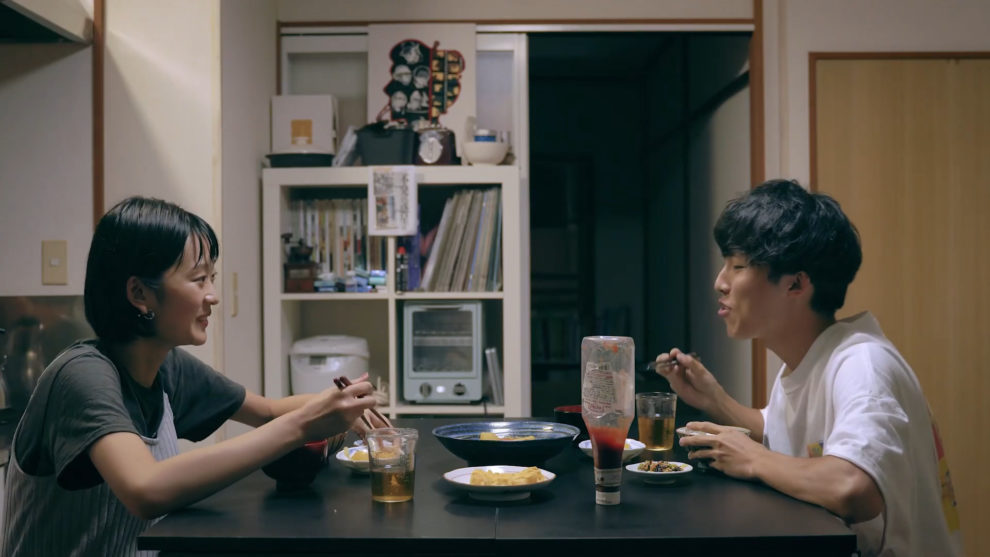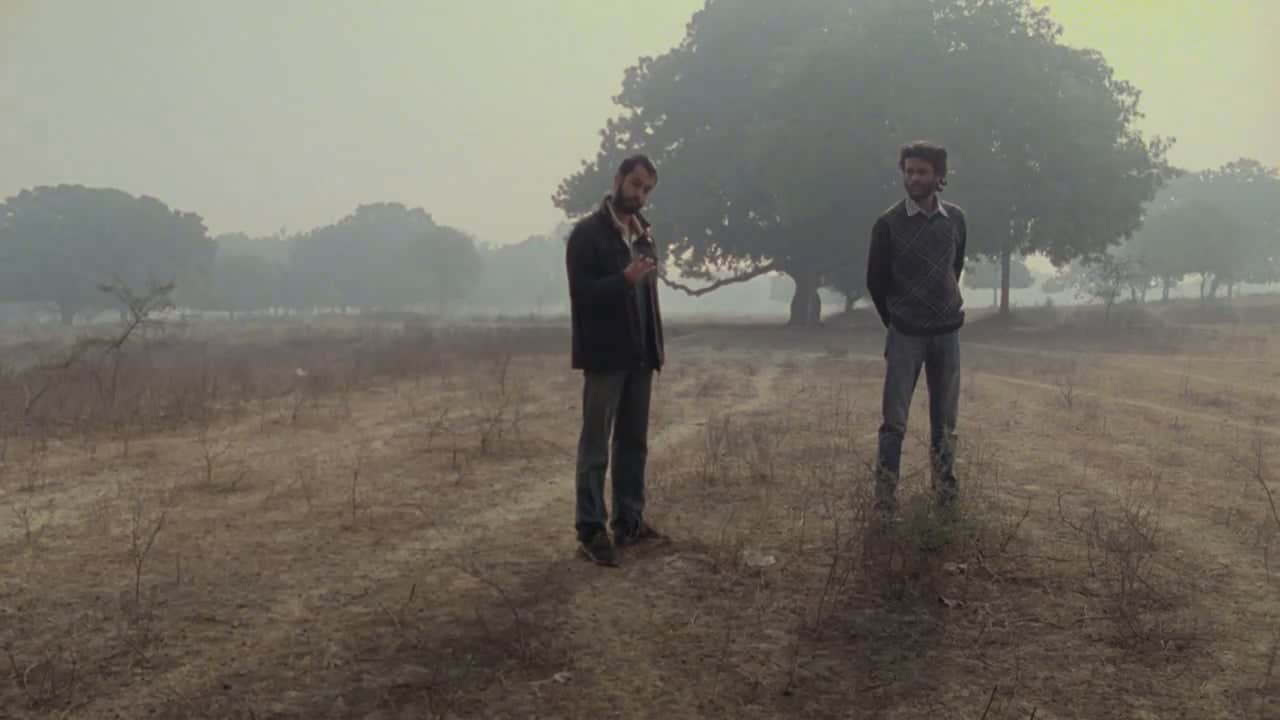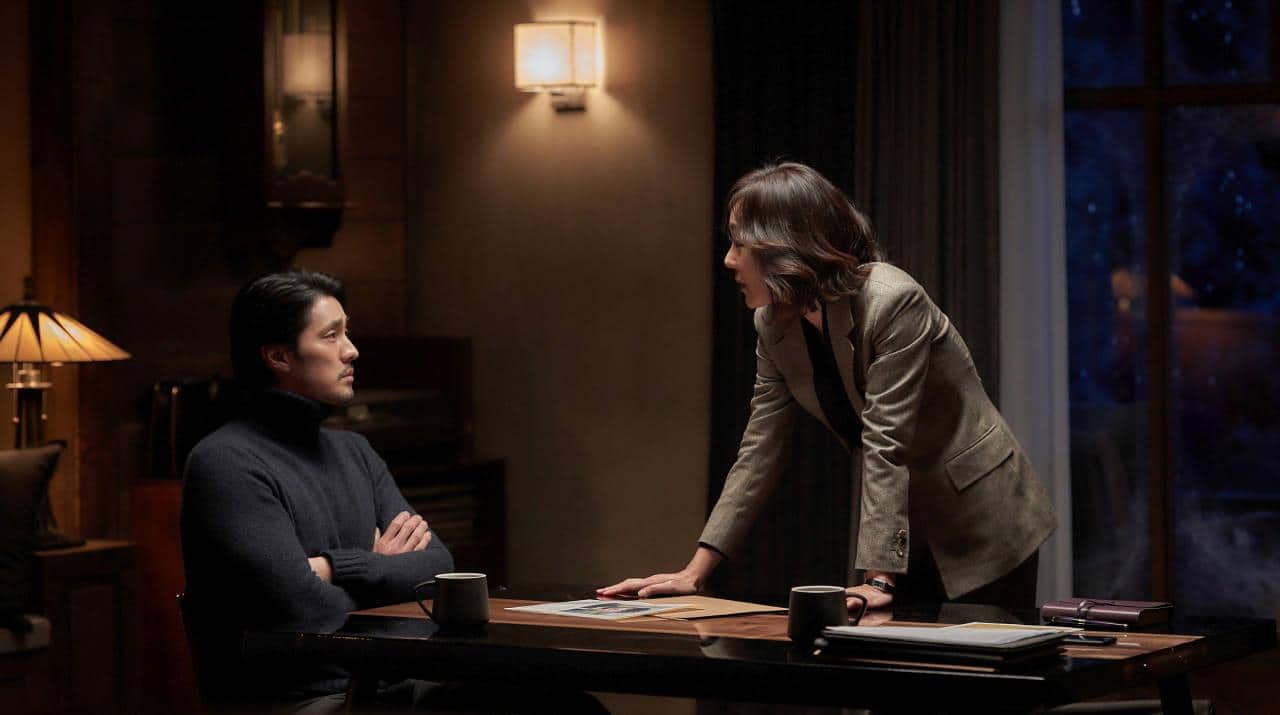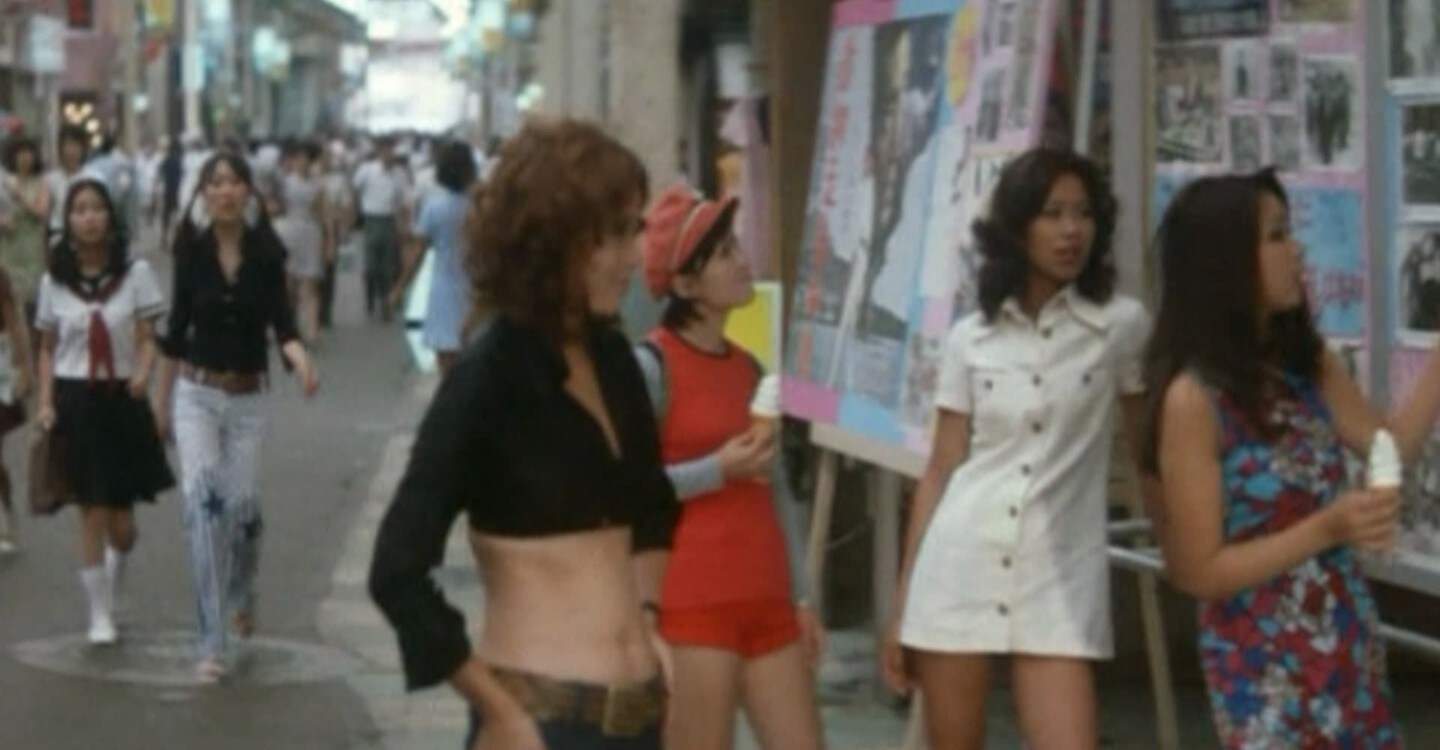While seasons such as winter and fall may be associated with heavy drama and melancholia, a story taking place during summer is connected to love, passion and possibly growth. With the end of summer, the passing of a relationship approaches, the insecurity whether it can grow into something more and lasting, giving this particular brand of story its own, very special kind of melancholia. In their collaborative feature “I Water A Cactus” directors Yuki Sugiyama, Shohei Hisamitsu and Minori Oka aim to tell such a story, a tale about a relationship and its development and whether it is meant to last.
I Water a Cactus is screening at Japan Filmfest Hamburg

It is summer and Akira (Reio Takahashi), a student, works in a second-hand-bookstore, making very little money but nevertheless enjoying the work, as it gives him much time to read. One day, while waiting for the train to take him back home, he runs into fellow student Kaho (Emi Miyashita) and during their conversation about a book Akira is reading and his job, they realize they have similar interests. In the next few days, the two meet again in the waiting room at the station, and eventually have their first, rather spontaneous date when Kaho convinces Akira to board the next train and show where it leads them. Eventually they kiss and, having moved out of her last apartment, Kaho moves in with him.
After a few weeks have passed by in which their relationship further developed, an old friend of Akira, Mizuno, asks to live with him for a few days. Even though the three get along just fine, with Mizuno and Kaho even becoming friends, there is the question whether Akira can hold onto this relationship or whether it will also eventually dissolve like his past ones.
Everything about “I Water A Cactus” feels like a throwback to the kind of talkative independent features known from directors such as Jim Jarmusch or Alexandre Rockwell. Supposedly as a nod towards the kind of literature Akira and Kaho talk about during their first encounters in the station's waiting room, nearly all the scenes are dialogue-driven with the camera being static most of the time. We get to know the character's past and their unique dynamics as they spent the majority of their time together in the small apartment, preparing dinner, talking about their days and their habits, especially smoking and washing. Although this kind of narrative approach has its limits and becomes tiresome after a while, at an overall running time of 65 minutes it does not overstay its welcome too much, also thanks to the characters being rather likable.
On the surface, not a lot happens in “I Water A Cactus”, especially as the story is more or less free of any kind of conflict. At the same time, Yuki Sugiyama's script uses visual metaphors and references in the dialogue to hint at issues within the group, possible tensions and their feelings for one another, most notably the cactus, one of the few possessions Kaho took with her when she moved out of her old apartment. Ideas such as helping someone grow or wanting to take care somebody are expressed, but are never fully addressed, resulting in the lightness of their characters' conversations also feeling somewhat detached, much like the comet that almost hit earth and thus never truly made contact.
In conclusion, “I Water A Cactus” is a true summer film about love and relationships. While its narrative approach may be frustrating to some, its use of visual metaphors and the performances by the actors make it an enjoyable feature which does not overstay its welcome.
















